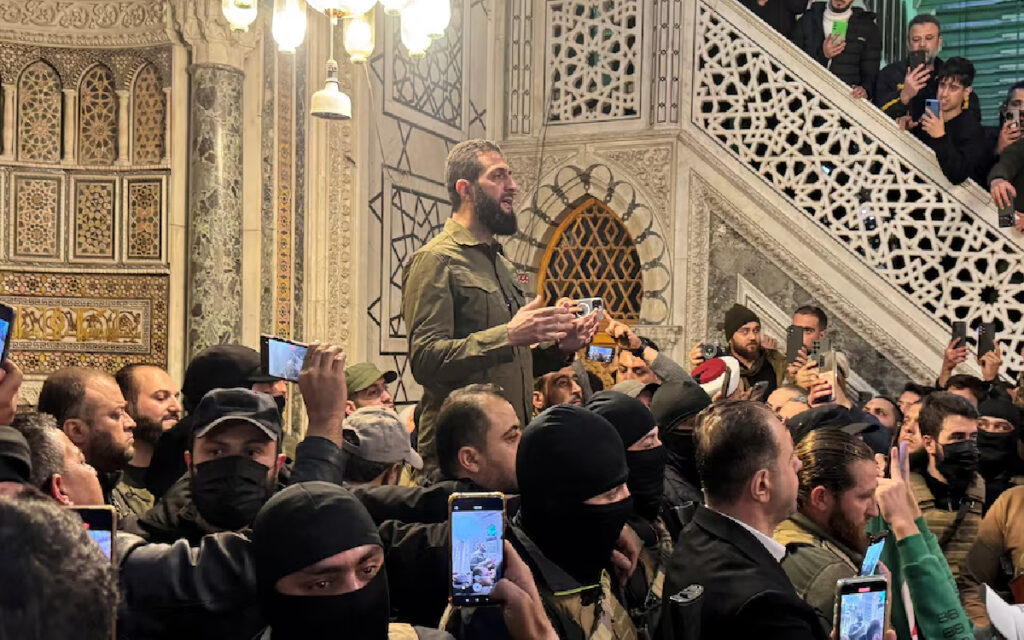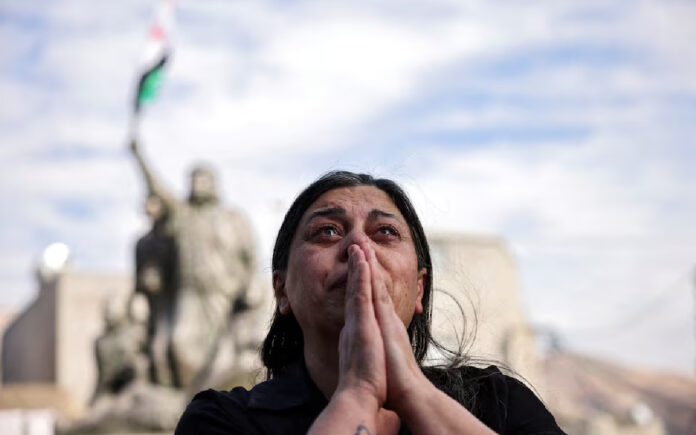Damascus: Syrian rebels seized Damascus on Sunday in a swift and unopposed advance, forcing President Bashar al-Assad to flee to Russia. The dramatic fall of Assad’s government marks the end of six decades of his family’s authoritarian rule and a pivotal shift in the Middle East.

A Turning Point in the Middle East
The overthrow of Assad’s regime dismantles a cornerstone of Iranian and Russian influence in the Arab world. Russia granted asylum to Assad and his family, as confirmed by Mikhail Ulyanov, Russia’s ambassador to international organizations in Vienna, through his Telegram channel.

This power shift is expected to weaken Iran’s ability to arm its allies and jeopardize Russia’s strategic Mediterranean naval base. Millions of Syrian refugees scattered across Turkey, Lebanon, and Jordan may now hope for a chance to return home.
“For Syrians, this moment brings an unexpected end to years of frozen conflict, unimaginable loss, and a devastated economy,” remarked Abu Mohammed al-Golani, the top rebel commander. Speaking at the historic Umayyad Mosque in Damascus, he declared, “A new history is being written in the region.”

Scenes of Liberation
The collapse of Assad’s infamous police state was swift. Prisoners poured out of jails after rebels blasted open cells, and streets filled with the elation of families reunited. Videos captured freed prisoners running through Damascus, some celebrating years of captivity coming to an end.
In the capital, rebel fighters imposed order amid the chaos. Some looted government buildings, while others tore down Assad’s images and burnt military vehicles. Curfews were enforced as celebratory gunfire echoed intermittently.

Transitional Governance
The Syrian rebel coalition announced plans for a transitional governing body, pledging to create a future that reflects the sacrifices of the Syrian people. Former Prime Minister Mohammad Ghazi al-Jalali called for free elections and confirmed discussions with Golani about the next steps.
Golani, whose group evolved from its al-Qaeda origins, emphasized that there was no turning back.
Also Read | Trump Suggests Putin Abandoned Assad as Russia Offers Refuge
Global Reactions
The overthrow stunned the Arab world and drew mixed responses from global leaders. U.S. President Joe Biden lauded the fall of Assad as a chance to “manage the risks” of the transition. Meanwhile, jubilant supporters of the rebellion replaced Assad-era flags with those of the opposition at Syrian embassies worldwide.
Israeli Prime Minister Benjamin Netanyahu attributed Assad’s downfall partly to Israel’s strikes on Iran and Hezbollah. French President Emmanuel Macron declared, “The barbaric state has fallen.”
Also Read | South Korea Special Forces Commander Claims He Was Ordered to Block Lawmakers
Challenges Ahead
The new Syrian leadership faces a daunting task of rebuilding a fractured nation. The civil war, which began as an uprising in 2011, left cities in ruins, displaced millions, and triggered a refugee crisis that reshaped global politics.
Russia and Iran, Assad’s primary allies, are seen as the biggest strategic losers. Moscow’s focus on the Ukraine war and Iran’s diminished regional influence following conflicts with Israel left Assad isolated.
As Syria enters a new chapter, its leaders must navigate the complex task of securing stability and rebuilding trust among its diverse population.



